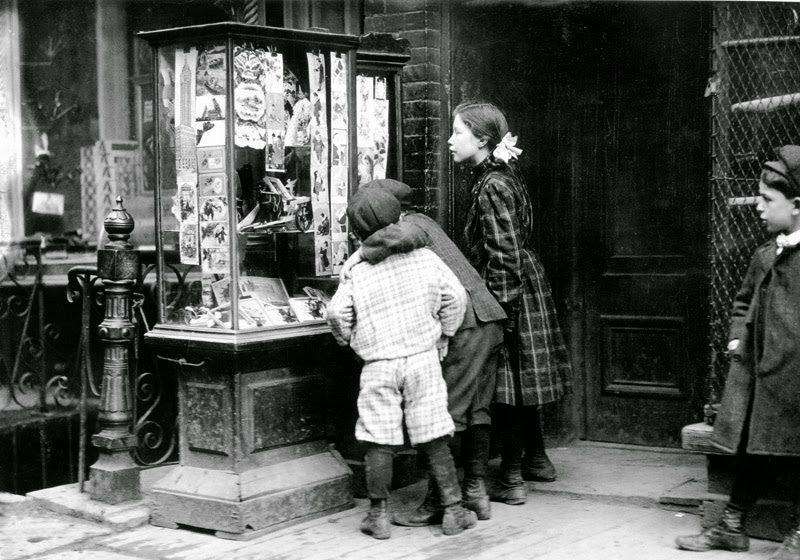Dealing with grief during the holidays…
 |
| Children looking at holiday cards ~ 1910 |
Did you ever stop to wonder why we have so many major holidays crammed into the last 90 days of the year? For many of us these holidays hold special memories of our childhood. These memories may be positive or negative, depending on our life experiences. And so then, each year as the days grow darker we find ourselves either looking forward to the holiday season or dreading it. And grieving the loss of a loved one may complicate one’s holidays in ways they least expect.
Over the past couple of weeks we’ve noticed telling remarks on social media, we’ve read op-eds in various print media, and of course this week many news outlets have started to air what has now become a yearly traditional segment on “grief during the holidays.”
As we watched some of these news segments, clicked through social media statuses, and thumbed through the newspapers…certain phrases or even just a single word would catch our eye.
- There was the smell of cookies baking in the kitchen
- Or the sight of the mailman stuffing our mailbox with holiday cards
- The touch of each year’s first snowfall and building a snowman
- Or the taste of Mom’s turkey gravy drizzled over mashed potatoes
- Finally, to hear a favorite holiday song, one that you sang with your family
Memories do light the corners of our minds, awaken every sense and it is those memories that are played over and over again as we deal with grief during the holiday season.
Dr. Margaret Rutherford talks about coping with grief during the holidays
Dr. Rutherford often writes for The Huffington Post and we found her recent “3 Tips For Coping With Grief During The Holidays” to be not only helpful, but to the point.
- Especially if it has been recent, allow others to help you. You could still be in shock. It is the time for receiving from those who love you.
- Know that your grief will be unique to you. Don’t feel that you must grieve the same way others do. Everyone will be different. Do the things that take care of you. That might be distraction. It might be the doing of tasks. It might be journaling about your pain. Whatever helps.
- Understand that there are many facets of grief. Anger, denial, despondency. All of these feelings are normal. The most important thing is not to become stuck in any one feeling. It takes time. Frequently a lot of it.
How to reach out and touch those who are grieving…
Factually there are many people who have never experienced the loss of a loved one. It is sometimes hard to imagine that to be true…but it is. However, it is so vital that we consider the thoughts and feelings of someone who is grieving. It is really about being aware and in tune enough to think ahead of what the grieving person is likely to be experiencing.
We came across an article published by My Fox News Detroit. They interviewed Peggy Nielsen, MA, LPC who offered the following advice.
- Don’t pressure a child or an adult to stop grieving – Avoid phrases like, “It’s time to move on, It’s the holiday’s get over it”. Each person grieves in their own time and their own way.
- Don’t avoid them – You may not know the right thing to say or do. Simply being around can be helpful. Comforting things to say even long after the death, “I’m sorry for your loss” or I’m so sorry that that happened to your son or daughter.”
- Don’t say, “It was for the best” – This doesn’t diminish the pain and sense of loss.
- Don’t say “I know how you feel;” unless you have been in a similar situation and can offer suggestions about what helped you to heal.
During the holiday season, we would offer one more tip: If you are sending holiday cards, stop and think how your holiday card (maybe it is a glossy family photo memory collage) might impact someone who is grieving. Take a few minutes, buy a special card or write a special personalized letter to them instead.
Some closing thoughts…
Grief is a normal and unavoidable part of human existence. We all will likely suffer the pain of grief at some point in our lives, usually with the death of a friend or loved one. When we suffer this kind of life event, we mourn and over time we accept our loss and – without forgetting – move on. But for some, it seems impossible to let go, and even years later, the pain of loss remains acute. This can be exacerbated when a loved one is lost to suicide, when a death is sudden and unexpected, or when one has an extremely close relationship with the deceased, such as parent/child, for example. If the process of grieving becomes stalled, this is when grief becomes complicated grief.
Start the conversation...






